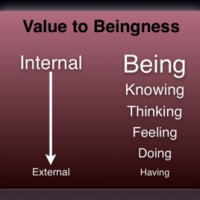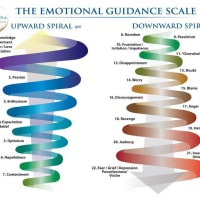page=19 - Www.markettorrent.com について
IPアドレスの情報 whois情報検索 http://jphosts.net/
Www.markettorrent.com - の情報
2013/08/15/05:44JST 現在
現在、繋がらない状態です。ドメインは、更新されていました。
Www.markettorrent.com - MarketTorrent.com - (Page 1)の情報
Www.markettorrent.com WHOISとip
Www.markettorrent.com Www.markettorrent.comのipアドレスは未知、ドメイン名の登録は09-jun-2008、期限まで時間を09-jun-2014、最近更新は10-jun-2013。記録係:1 & 1 INTERNET AG。初歩SEO評価を0分。
2013/08/15/05:44JST 現在
-----
ドメイン名の登録情報
ドメイン名 Www.markettorrent.com
ステータス ok
記録係 1 & 1 INTERNET AG
登録日 09-jun-2008
変更日 10-jun-2013
有効期限 09-jun-2014
-----
page=19
Chapter 8 - Setting and Attaining Your Goals
第8章 - あなたのゴールを決めて、遂げること
(第8章 - あなたのゴールをセットして、そして実現します)
Chapter 8 - Setting and Attaining Your Goals
In this chapter, we’re going to explore a very powerful application of the Sedona Method: setting and attaining goals. While I cannot guarantee that the process described here will help you achieve every goal that you set, I am able to promise that it will dramatically improve the odds in your favor. Not only can this process help you discern which goals are ones that you truly can and should pursue, it will also help you to let go of goals that are inappropriate. In addition, you’ll begin to feel better about goal setting in general.
この章では、我々はSedona Methodの非常に強力なアプリケーションを調査するつもりです:
ゴールを決めて、遂げること。
ここで記述されるプロセスがあなたがあなたが決めたすべてのゴールを達成するのに役立つと保証することができない間、私はそれがあなたの支持で確率を劇的に向上させると約束することができます。
さらに、このプロセスはあなたがどのゴールが本当に追求することができ追求するべきいくつかのものか識別するのを助けることができるだけではなく、それは、あなたが不適当なゴールを手放すのを助けるでしょう。
これに加えて、あなたは大方のゴール・セッティングについて気分が前より良くし始めます。
When you hear the word “goal,” does it conjure up strong positive or negative feelings? We live in an extremely goal oriented culture, yet most of us have mixed feelings about setting and attaining goals. We have internalized so many shoulds and shouldn’ts that dictate what we’re supposed to want and strive for in life that the goals we pursued in the past, or that we’re pursuing now, often do not feel like our own.
あなたが「ゴール」という語を聞くとき、それは強い陽であるか否定的な感情を出しますか?
とても、我々は住み込みで働きます。そして、ゴールは文化を指向しました、それでも、我々のほとんどはゴールを決めて、遂げることについてこもごもの思いを持ちます。
多くの人々が、欲しいことになっているものをとても口述して、過去に追求した、または、現在追求しているゴールがしばしば我々自身のもののような感じがしない人生でのために努力するように、内在化されて、我々は持ちます。
-----
注記:shoulds and shouldn’ts => should and shouldn’t
-----
Do you work in a business environment that imposes goals upon you? Does your family have an undue influence on your life choices? Do you feel as though only certain goals are acceptable to your friends and peers? If you answered “yes” to any of the preceding questions, you are not alone. At times, most of us have felt pushed or cornered into pursuing goals that we probably would not have chosen if we were given the choice.
あなたは、あなたにゴールを強いるビジネス環境で働きますか?
あなたの家族は、あなたの生命選んだ方の上に不当威圧を持ちますか?
まるで特定のゴールだけがあなたの友人と仲間にとって容認できるように、あなたは感じますか?
前の問題のいずれかに「はい」に答えるならば、あなたは一人でありません。
時々、選択をされるならば、我々がおそらく選ばなかっただろうゴールを追求することに、我々のほとんどは、押されたか、隅に置かれました。
We have also had diverse experiences when we were striving to achieve our goals: some good, some so-so, others frustrating. Although we’ve pursued certain goals with our full hearts and minds, we’ve ultimately given up on them, because they took too long to realize. Other goals we’ve achieved without even trying. These kinds of experiences color our impressions of goal setting and generate a broad spectrum of emotional responses. In short, there’s a lot of confusion around the whole topic.
ゴールを達成するよう努めていたとき、我々は多様な経験もしました:
いらいらさせる若干の良い(少しまあまあの)他。
ふっくらした心臓と心で特定のゴールを追求したが、彼らがわかるのに手間どりすぎたので、我々は彼らを最後に見限りました。
我々がためすことさえなく達成した他のゴール。
これらの種類の経験はゴール・セッティングについての我々の印象に色をつけて、広い範囲の感情的な反応を起こします。
要するに、多くの混乱が、全部の話題のまわりにあります。
As Lester Levenson stewarded the creation of the Goal Process you’re about to learn, he was aware of the confusion so many people feel. By designing a simple system, he hoped he could alleviate much of the suffering associated with goals. He purposefully crafted the process in such a way that, besides creating what we wanted in our lives, we would gain another major benefit from releasing on our goals: imperturbability.
レスター・レヴェンソンが事務長として、これから学習するゴール・プロセスの生成をしたので、彼は、同数の人々が感じる混乱に気づいていました。
(レスター・レヴェンソンが、あなたが学ぼうとしているゴール・プロセスの創造をスチュワード (幹事) したので、彼は混乱をそれほど多くの人々が感じることを知っていました。)
単純なシステムを設計することによって、彼は、ゴールと関連した苦しみの多くを軽減することができることを望みました。
我々が一生で欲しかったものをつくる他に、我々がゴールで以下をリリースすることからもう一つの大きな利益を得るそのような方法で、彼はプロセスを目的を持って手で作りました:
冷静(不動心)。
(レスター・レヴェンソンがゴール・プロセスの生成をスチュワード (幹事) するとともに、彼が同数の人々が感じる混乱に気づいていたことを知るところです。
シンプル方式の設計によって、彼は、ゴールに関連した苦痛の多くを緩和するかもしれないことを望みました。
彼は、意図的に私たちが一生のうち望んだものの作成に加えて、私たちが私たちのゴール上でリリースすることからの別の主な利益を獲得したのと同じ方法でプロセスを巧妙に作りました:
imperturbability(不動心)。)
-----
注記:stewarded:
Simple past tense and past participle of steward.
(スチュワードの単純な過去時制と過去分詞。)
steward: スチュワード;幹事
注記:imperturbability:不動心
-----
Becoming “Hootless”
We all spend much of our time either moving away from, or moving towards, the actual or potential contents of our lives as a result of our attachments and aversions. These are the real or imagined objects that we hold in awareness and grant the power to bestow or take away our natural state of happiness. Attachments are those things that we desire to hold close. Aversions are those things that we desire to hold away. In both cases, the operative word is “hold.” Since they are the leading cause of our unnecessary suffering, a primary definition of freedom would be having no attachments and no aversions.
When you set a goal and use releasing to achieve it, you bring up into your awareness the attachments and aversions that you have about that particular issue. Then, as you release your attachments and aversions to the goal, you’ll either achieve it or you won’t. But, either way, you’ll have lightened your load of suffering. You’ll become free.
The way results are achieved is by reaching an internal feeling state that Lester called “hootlessness.” Hootlessness is when you do not give a hoot whether you achieve a particular goal or not. Contrary to popular belief, you do not attain your goals when you desire them strongly enough. In fact, if you honestly examine your past experiences, you’ll discover that most of the goals you’ve achieved are the ones that you let go of wanting―even if not by choice. Most people focus on the struggle that leads up to the letting go and then attribute their results to the struggle rather than the release. They miss the point.
As you journey through this process, you’ll discover that the struggle is unnecessary. This does not mean, of course, that you won’t take action steps to achieve your goals. It simply means that the actions you do choose to take will come with less effort and drama. When you allow yourself to release to the point where you are hootless about getting your goal, two things may happen. Either you’ll find that you abandon the goal altogether and feel lighter because of it, or you’ll be much more likely to achieve the goal than you were when you wanted it. As Lester used to say, “Even the impossible becomes completely possible when you are fully released on it. And you know when you are fully released on it when you don’t give a hoot.”
Now, you may be concerned that if you become hootless you won’t enjoy the fruits of your labors. Let me put this fear to rest. In my experience, it couldn’t be further from the truth. The more hootless you feel, the freer you are to enjoy whatever you have in this moment without the usual fear of loss or disappointment.
In Chapter 6, Taking Your Releasing to a Deeper Level, we looked at our motivations and how we have a tendency to confuse objects with feelings. We want approval, control, security, and separation―as well as their opposites―and we erroneously believe that objects give them to us. So, another reason why we may have mixed feelings about goals is that, even when we do get something we believe we want, it never truly satisfies us.
After all, how long do we enjoy a new car, stereo, or pair of shoes? Usually, not long enough. Almost as soon as we get one item on our list, we move on to the next, because the happiness we seek is not truly contained in any object. Rather, it is our natural state of being. When we get past seeking objects and outcomes, we become hootless.
Does this mean that you should stop pursuing goals? Absolutely not! I highly recommend that you pursue your goals using the process in this chapter until you achieve them or you let go of wanting them. Denying that you want something will not cause the desire to go away. Until you acknowledge a desire, and either achieve it or let it go, it will eat away your insides. Rest
IPアドレスの情報 whois情報検索 http://jphosts.net/
Www.markettorrent.com - の情報
2013/08/15/05:44JST 現在
現在、繋がらない状態です。ドメインは、更新されていました。
Www.markettorrent.com - MarketTorrent.com - (Page 1)の情報
Www.markettorrent.com WHOISとip
Www.markettorrent.com Www.markettorrent.comのipアドレスは未知、ドメイン名の登録は09-jun-2008、期限まで時間を09-jun-2014、最近更新は10-jun-2013。記録係:1 & 1 INTERNET AG。初歩SEO評価を0分。
2013/08/15/05:44JST 現在
-----
ドメイン名の登録情報
ドメイン名 Www.markettorrent.com
ステータス ok
記録係 1 & 1 INTERNET AG
登録日 09-jun-2008
変更日 10-jun-2013
有効期限 09-jun-2014
-----
page=19
Chapter 8 - Setting and Attaining Your Goals
第8章 - あなたのゴールを決めて、遂げること
(第8章 - あなたのゴールをセットして、そして実現します)
Chapter 8 - Setting and Attaining Your Goals
In this chapter, we’re going to explore a very powerful application of the Sedona Method: setting and attaining goals. While I cannot guarantee that the process described here will help you achieve every goal that you set, I am able to promise that it will dramatically improve the odds in your favor. Not only can this process help you discern which goals are ones that you truly can and should pursue, it will also help you to let go of goals that are inappropriate. In addition, you’ll begin to feel better about goal setting in general.
この章では、我々はSedona Methodの非常に強力なアプリケーションを調査するつもりです:
ゴールを決めて、遂げること。
ここで記述されるプロセスがあなたがあなたが決めたすべてのゴールを達成するのに役立つと保証することができない間、私はそれがあなたの支持で確率を劇的に向上させると約束することができます。
さらに、このプロセスはあなたがどのゴールが本当に追求することができ追求するべきいくつかのものか識別するのを助けることができるだけではなく、それは、あなたが不適当なゴールを手放すのを助けるでしょう。
これに加えて、あなたは大方のゴール・セッティングについて気分が前より良くし始めます。
When you hear the word “goal,” does it conjure up strong positive or negative feelings? We live in an extremely goal oriented culture, yet most of us have mixed feelings about setting and attaining goals. We have internalized so many shoulds and shouldn’ts that dictate what we’re supposed to want and strive for in life that the goals we pursued in the past, or that we’re pursuing now, often do not feel like our own.
あなたが「ゴール」という語を聞くとき、それは強い陽であるか否定的な感情を出しますか?
とても、我々は住み込みで働きます。そして、ゴールは文化を指向しました、それでも、我々のほとんどはゴールを決めて、遂げることについてこもごもの思いを持ちます。
多くの人々が、欲しいことになっているものをとても口述して、過去に追求した、または、現在追求しているゴールがしばしば我々自身のもののような感じがしない人生でのために努力するように、内在化されて、我々は持ちます。
-----
注記:shoulds and shouldn’ts => should and shouldn’t
-----
Do you work in a business environment that imposes goals upon you? Does your family have an undue influence on your life choices? Do you feel as though only certain goals are acceptable to your friends and peers? If you answered “yes” to any of the preceding questions, you are not alone. At times, most of us have felt pushed or cornered into pursuing goals that we probably would not have chosen if we were given the choice.
あなたは、あなたにゴールを強いるビジネス環境で働きますか?
あなたの家族は、あなたの生命選んだ方の上に不当威圧を持ちますか?
まるで特定のゴールだけがあなたの友人と仲間にとって容認できるように、あなたは感じますか?
前の問題のいずれかに「はい」に答えるならば、あなたは一人でありません。
時々、選択をされるならば、我々がおそらく選ばなかっただろうゴールを追求することに、我々のほとんどは、押されたか、隅に置かれました。
We have also had diverse experiences when we were striving to achieve our goals: some good, some so-so, others frustrating. Although we’ve pursued certain goals with our full hearts and minds, we’ve ultimately given up on them, because they took too long to realize. Other goals we’ve achieved without even trying. These kinds of experiences color our impressions of goal setting and generate a broad spectrum of emotional responses. In short, there’s a lot of confusion around the whole topic.
ゴールを達成するよう努めていたとき、我々は多様な経験もしました:
いらいらさせる若干の良い(少しまあまあの)他。
ふっくらした心臓と心で特定のゴールを追求したが、彼らがわかるのに手間どりすぎたので、我々は彼らを最後に見限りました。
我々がためすことさえなく達成した他のゴール。
これらの種類の経験はゴール・セッティングについての我々の印象に色をつけて、広い範囲の感情的な反応を起こします。
要するに、多くの混乱が、全部の話題のまわりにあります。
As Lester Levenson stewarded the creation of the Goal Process you’re about to learn, he was aware of the confusion so many people feel. By designing a simple system, he hoped he could alleviate much of the suffering associated with goals. He purposefully crafted the process in such a way that, besides creating what we wanted in our lives, we would gain another major benefit from releasing on our goals: imperturbability.
レスター・レヴェンソンが事務長として、これから学習するゴール・プロセスの生成をしたので、彼は、同数の人々が感じる混乱に気づいていました。
(レスター・レヴェンソンが、あなたが学ぼうとしているゴール・プロセスの創造をスチュワード (幹事) したので、彼は混乱をそれほど多くの人々が感じることを知っていました。)
単純なシステムを設計することによって、彼は、ゴールと関連した苦しみの多くを軽減することができることを望みました。
我々が一生で欲しかったものをつくる他に、我々がゴールで以下をリリースすることからもう一つの大きな利益を得るそのような方法で、彼はプロセスを目的を持って手で作りました:
冷静(不動心)。
(レスター・レヴェンソンがゴール・プロセスの生成をスチュワード (幹事) するとともに、彼が同数の人々が感じる混乱に気づいていたことを知るところです。
シンプル方式の設計によって、彼は、ゴールに関連した苦痛の多くを緩和するかもしれないことを望みました。
彼は、意図的に私たちが一生のうち望んだものの作成に加えて、私たちが私たちのゴール上でリリースすることからの別の主な利益を獲得したのと同じ方法でプロセスを巧妙に作りました:
imperturbability(不動心)。)
-----
注記:stewarded:
Simple past tense and past participle of steward.
(スチュワードの単純な過去時制と過去分詞。)
steward: スチュワード;幹事
注記:imperturbability:不動心
-----
Becoming “Hootless”
We all spend much of our time either moving away from, or moving towards, the actual or potential contents of our lives as a result of our attachments and aversions. These are the real or imagined objects that we hold in awareness and grant the power to bestow or take away our natural state of happiness. Attachments are those things that we desire to hold close. Aversions are those things that we desire to hold away. In both cases, the operative word is “hold.” Since they are the leading cause of our unnecessary suffering, a primary definition of freedom would be having no attachments and no aversions.
When you set a goal and use releasing to achieve it, you bring up into your awareness the attachments and aversions that you have about that particular issue. Then, as you release your attachments and aversions to the goal, you’ll either achieve it or you won’t. But, either way, you’ll have lightened your load of suffering. You’ll become free.
The way results are achieved is by reaching an internal feeling state that Lester called “hootlessness.” Hootlessness is when you do not give a hoot whether you achieve a particular goal or not. Contrary to popular belief, you do not attain your goals when you desire them strongly enough. In fact, if you honestly examine your past experiences, you’ll discover that most of the goals you’ve achieved are the ones that you let go of wanting―even if not by choice. Most people focus on the struggle that leads up to the letting go and then attribute their results to the struggle rather than the release. They miss the point.
As you journey through this process, you’ll discover that the struggle is unnecessary. This does not mean, of course, that you won’t take action steps to achieve your goals. It simply means that the actions you do choose to take will come with less effort and drama. When you allow yourself to release to the point where you are hootless about getting your goal, two things may happen. Either you’ll find that you abandon the goal altogether and feel lighter because of it, or you’ll be much more likely to achieve the goal than you were when you wanted it. As Lester used to say, “Even the impossible becomes completely possible when you are fully released on it. And you know when you are fully released on it when you don’t give a hoot.”
Now, you may be concerned that if you become hootless you won’t enjoy the fruits of your labors. Let me put this fear to rest. In my experience, it couldn’t be further from the truth. The more hootless you feel, the freer you are to enjoy whatever you have in this moment without the usual fear of loss or disappointment.
In Chapter 6, Taking Your Releasing to a Deeper Level, we looked at our motivations and how we have a tendency to confuse objects with feelings. We want approval, control, security, and separation―as well as their opposites―and we erroneously believe that objects give them to us. So, another reason why we may have mixed feelings about goals is that, even when we do get something we believe we want, it never truly satisfies us.
After all, how long do we enjoy a new car, stereo, or pair of shoes? Usually, not long enough. Almost as soon as we get one item on our list, we move on to the next, because the happiness we seek is not truly contained in any object. Rather, it is our natural state of being. When we get past seeking objects and outcomes, we become hootless.
Does this mean that you should stop pursuing goals? Absolutely not! I highly recommend that you pursue your goals using the process in this chapter until you achieve them or you let go of wanting them. Denying that you want something will not cause the desire to go away. Until you acknowledge a desire, and either achieve it or let it go, it will eat away your insides. Rest

















